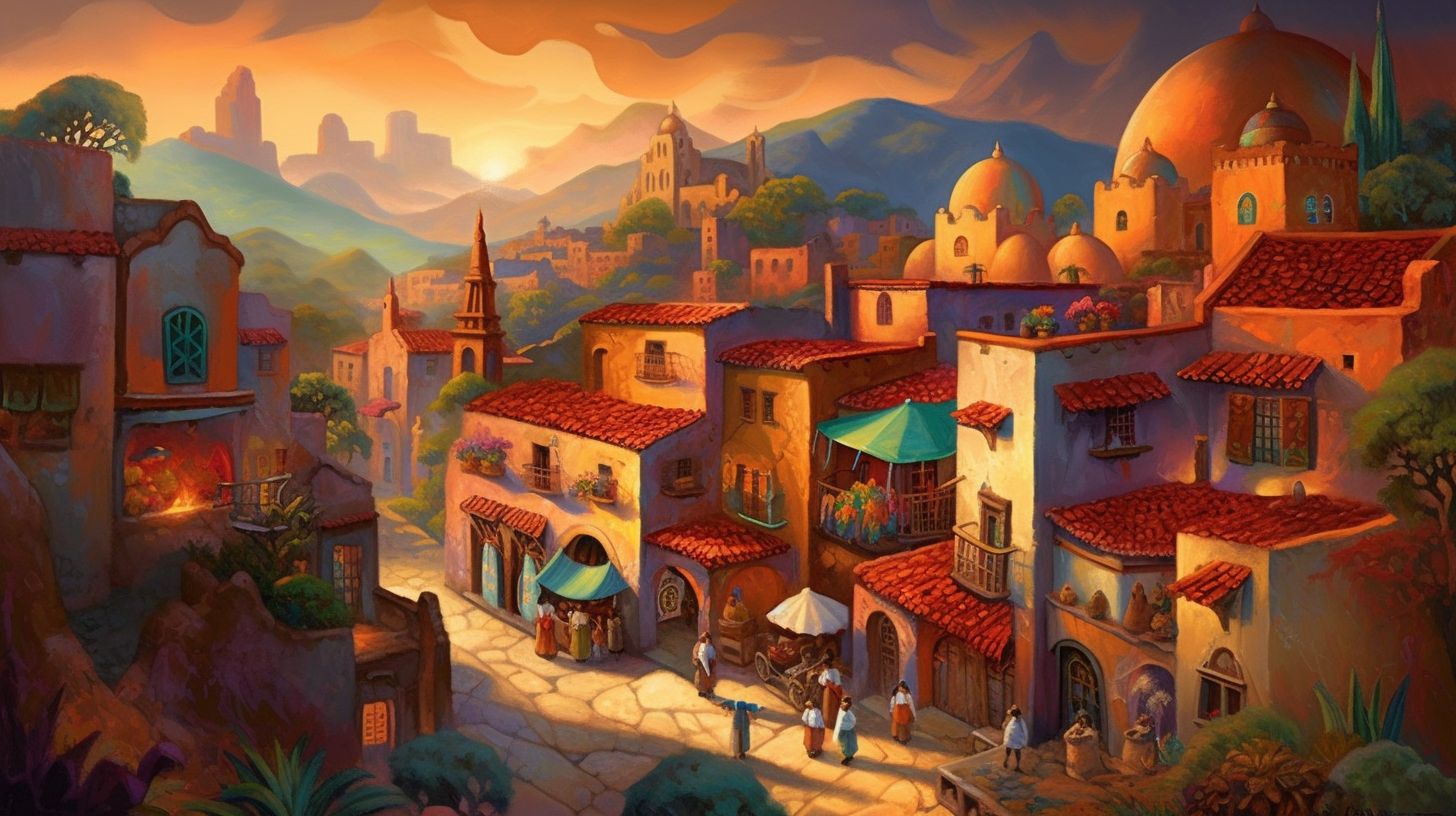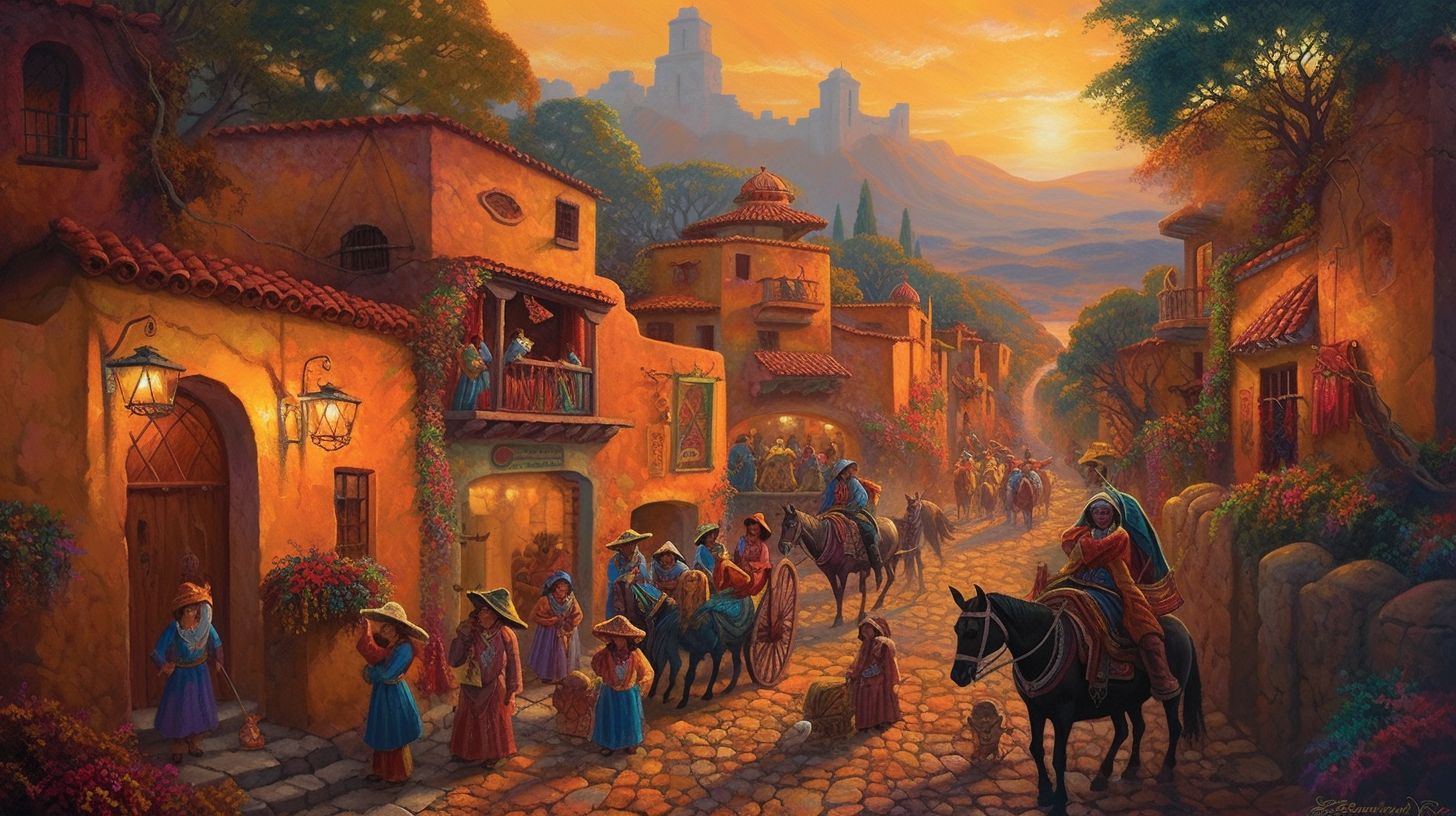Mexican
Mexico is a nation with a rich and diverse history, influenced by a variety of cultures and civilizations, including the indigenous peoples of the region, the Spanish colonizers, and the various nations that have played a role in shaping its modern identity. This article will explore Mexican history and heritage from the 16th to the 19th centuries, focusing particularly on the formation of Mexico as a nation and the experiences of Mexican people in the United States up until 1880.
16th Century
Mexico's modern history begins with the arrival of Spanish conquistadors in the early 16th century. Led by Hernán Cortés, the Spanish forces toppled the powerful Aztec Empire in 1521 and established the Viceroyalty of New Spain, which covered much of present-day Mexico and parts of the United States.
The Spanish conquest had a profound impact on the indigenous peoples of Mexico, bringing new technologies, crops, and animals, as well as the Spanish language, religion, and culture. However, it also led to widespread disease, forced labor, and the destruction of many indigenous societies.
17th and 18th Centuries
During the 17th and 18th centuries, New Spain continued to grow, with the Spanish Crown expanding its control over the region and establishing new settlements, missions, and trade routes. The economy of New Spain was built on agriculture, mining, and the forced labor of the indigenous population, with silver mining, in particular, playing a crucial role in the global economy.
Throughout this period, a unique Mexican culture began to emerge, blending indigenous, Spanish, and African influences. This mestizo culture would become an essential aspect of Mexico's national identity.
19th Century
The early 19th century saw a wave of independence movements across Latin America, and Mexico was no exception. In 1810, Miguel Hidalgo, a Catholic priest, ignited the Mexican War of Independence with his famous Grito de Dolores, a call to arms against Spanish rule. After more than a decade of conflict, Mexico gained its independence from Spain in 1821, and the First Mexican Empire was established.
In the years that followed, Mexico faced numerous challenges, including internal strife, foreign invasions, and territorial disputes with the United States. The Mexican-American War (1846-1848) resulted in the loss of a significant portion of Mexico's territory, including modern-day California, Texas, Arizona, New Mexico, and parts of several other states.
Mexican People in the United States (up to 1880)
Throughout the 19th century, Mexican people played a vital role in shaping the development of the American Southwest. Many Mexican families had lived in the region long before it became part of the United States, working as farmers, ranchers, and artisans. After the Mexican-American War, the Treaty of Guadalupe Hidalgo guaranteed the rights of these Mexican citizens to continue living in the newly acquired territories, but they often faced discrimination and challenges to their land claims.
Mexican immigrants also began to arrive in the United States in search of new opportunities, contributing to the growth of the American economy through their labor and entrepreneurship. By 1880, Mexican people and their descendants had become an integral part of the diverse tapestry of American society, enriching its culture, economy, and history.
Related Organizations


